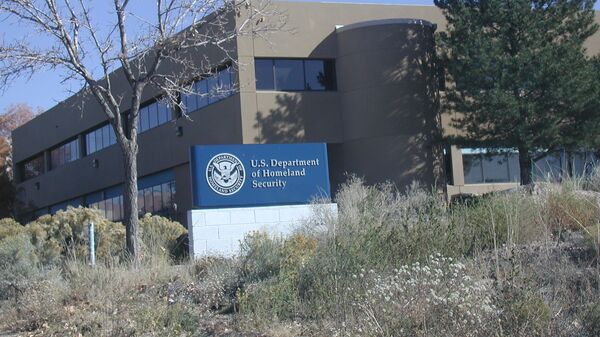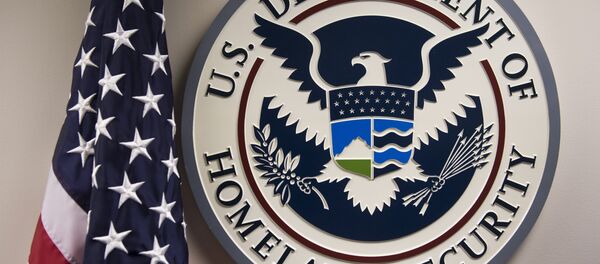That's the gist of a new report by political expert Gareth Porter, writing in Consortium News. The phony claim that the DHS notified states about threats to their election networks has been parroted by the likes of ABC News, Porter writes. The real motive all along, he claims, was about administrative politics.
"In late summer and fall 2016, the Department of Homeland Security was maneuvering politically to designate state and local voter registration databases and voting systems as ‘critical infrastructure.' Such a designation would make voter-related networks and websites under the protection a ‘priority sub-sector' in the DHS ‘National Infrastructure Protection Plan,' which already included 16 such sub-sectors."
To Washington's chagrin, state authorities were reluctant to give up jurisdiction over state web assets to federal authorities.
"DHS Secretary Jeh Johnson and other senior DHS officials consulted with many state election officials in the hope of getting their approval for such a designation. Meanwhile, the DHS was finishing an intelligence report that would both highlight the Russian threat to US election infrastructure and the role DHS could play in protecting it, thus creating political impetus to the designation. But several secretaries of state — the officials in charge of the election infrastructure in their state — strongly opposed the designation that Johnson wanted."
The lame-duck DHS secretary moved ahead with the designation on January 6, 2017, anyway.
A sensational ABC report claimed Russian-led attacks had targeted "nearly half of states' voter registration systems, successfully infiltrated 4," in September 2016. But state election officials in virtually all of those states denied that anything had happened. In Illinois, where some voter information was in fact copied from electronic properties housing voter registration data, key federal officials had no clue how the Russian government might use that data. FBI counterintelligence official Bill Priestap told Congress in June 2017 that Russians "took the data to see what it consisted of" when asked how the data might be used against the United States.
The state of Georgia was subjected to attempted hacks against its state websites — but the DHS itself was behind those attacks, the Wall Street Journal reported in December 2016. This story bucked the narrative that Russia was always behind any attacks and coincidentally did not get much traction in the national broadcast media nor among the neoconservative-and-neoliberal "resistance" movement.
DHS officials Samuel Liles and Jeannette Manfra said the DHS and the intelligence community ran down the Russiagate track anyway, so that the hacks "could be intended or used to undermine public confidence in electoral processes and potentially the outcome."
"[A]s senior DHS officials Samuel Liles and Jeanette Manfra put it,… the hacks ‘could be intended or used to undermine public confidence in electoral processes and potentially the outcome.' But such a strategy could not have had any effect without a decision by DHS and the US intelligence community to assert publicly that the intrusions and other scanning and probing were Russian operations, despite the absence of hard evidence," Porter wrote.
"So DHS and other agencies were consciously sowing public doubts about US elections that they were attributing to Russia."
(The interview with Gareth Porter starts at 1:50:50.)
"A lot of leaks carried the same story: that 21 states, at least, had been targeted by the Russians. What I found out, when I really went into this more deeply this year, is that this is all the work of the Department of Homeland Security (DHS), which is really a bureaucracy on the make. This is a huge bureaucracy, that was created of course after 9/11, sort of knitting together a series of other bureaucracies, and it's grown like Topsy, and it wants more and more power," Porter said in a Tuesday interview on Radio Sputnik's Fault Lines with Lee Stranahan and Garland Nixon.
"In 2016, DHS wanted to add the electoral infrastructure to its collection of basic infrastructure areas so it would fall under DHS protection in terms of cybersecurity," Porter said.
DHS did an "intelligence analysis which they never released, but only had a draft of, and the essence of the storyline they wanted to put out with their intelligence analysis was what showed up in the media. What they actually had was nothing more than a collection of cases of websites that somebody tried to hack into," he said, noting, "That's something that happens every day — tens, hundreds of thousands of times around the country."
"We know that the one place where there was information actually stolen from a state website, that case being the one of Illinois in 2016, the people who did it did not try to change anything. They left it alone, but they made copies of the personal information of registered voters in Illinois," Porter said. The reason for doing that, he continued, was to "sell it on the dark web."
DHS official Andy Ozment told Congress in September 2016 that the hackers' motive for not tampering with the Illinois voter registration database was "possibly for the purpose of selling information."
In 2017, Ken Menzel, the legal adviser to the Illinois secretary of state, told Porter: "Hackers have been trying constantly to get into it since 2006. Every governmental database — driver's license, health care, you name it — has people trying to get into it."
If hacking and selling data is a "big industry," as Porter said, there must be a major industry for protecting data too. If Porter is right, DHS has taken sophisticated measures to try to corner that industry within the sprawling bureaucratic mushroom that hangs over Washington.








